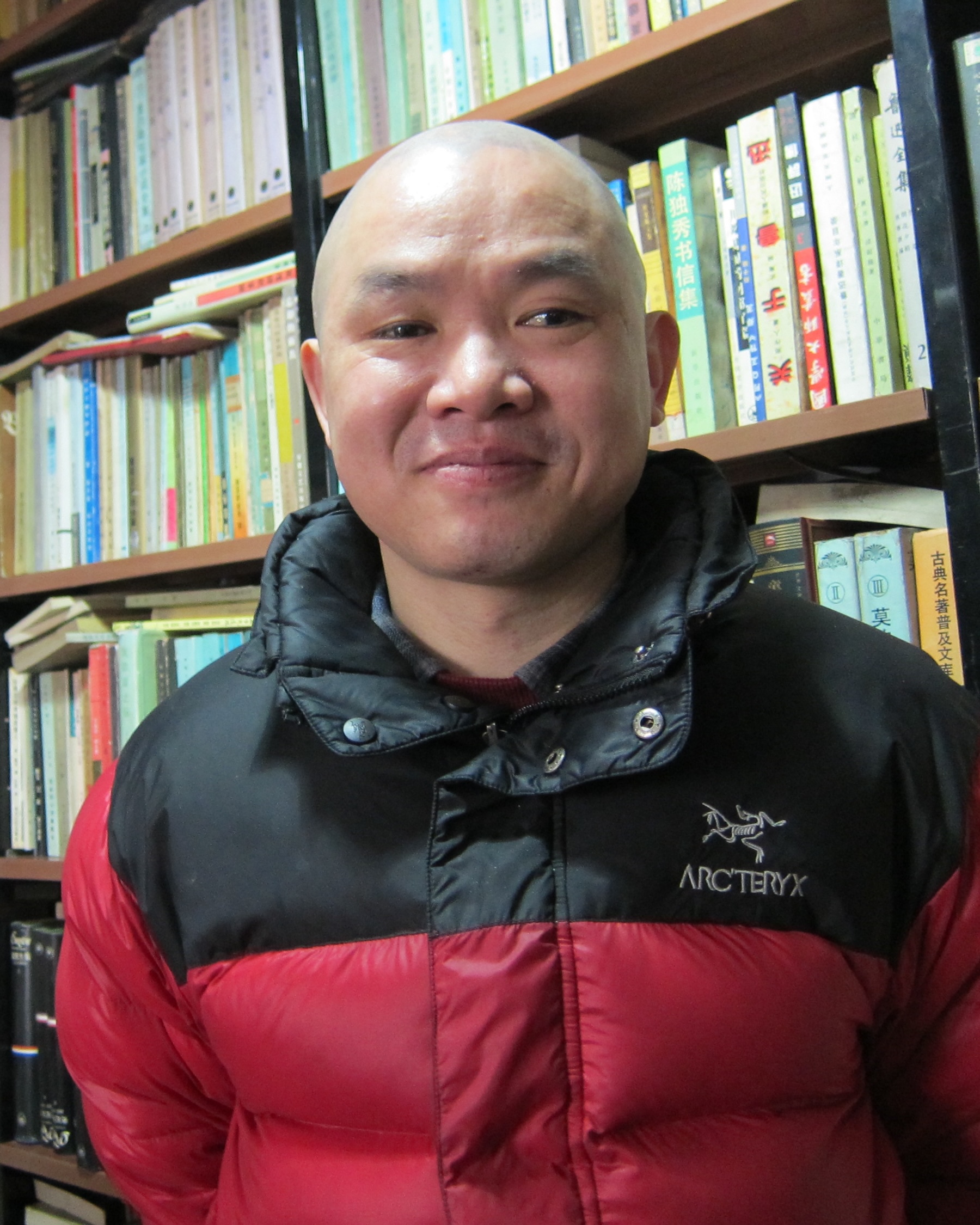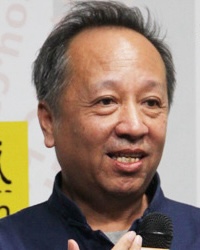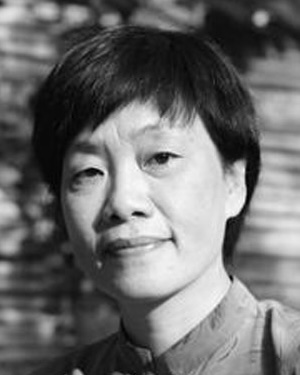
Cui Weiping
Cui Weiping (1956-), a native of Yancheng, Jiangsu Province, is a scholar and translator.
Cui was born into a family of local CCP cadres. Her parents were sent to the May Seventh Cadre School during the Cultural Revolution, and she was sent down to the countryside with her parents. After graduating from high school in 1974, Cui once again went to the countryside as a sent-down youth for three years, growing cotton in Sheyang County in Jiangsu Province. Reflecting on lessons learned from that era, <a href="https://minzhuzhongguo.org/?p=23005"she says</a>: “First, the truth is buried in the ground and is not popular. People need to hold on to the truth, and doing that requires perseverance. Secondly, this country has traveled a very crooked path, especially in terms of ideas. Many of the things that were once held up as the norm are just absurd, but they have profoundly affected our way of thinking, and require constant reflection in order to be purged.”
As one of the first batch of university students admitted after the Cultural Revolution, she studied at the Department of Chinese Language and Literature of Nanjing University from 1978 to 1984, where she received a B.A. in Chinese Language and Literature and an M.A. in Literature and Art. In 1984, she was assigned to teach at the Beijing Film Academy, and was promoted as a professor in 1999, before retiring in 2011.
Her main fields of research are film and literary theory, as well as contemporary Chinese avant-garde literature. In 1993, she came across a book by Václav Havel, and since then her research interest has extended to political philosophy, especially contemporary Eastern European thought and culture. She was the earliest translator and introducer of the works of Havel and the Polish thinker Adam Michnik in mainland China, and has translated <i>Collected Works of Václav Havel</i> and <i>Towards a Civil Society</i>, among others. She has also written many books, including <i>Dawn with Wounds</i> (1998), <i>The Immortal Haizi:A Collection of Commentaries on Haizi</i> (1999), <i>I've Seen Beautiful Sights</i>, <i?Invisible Voices</i> (2000), <i>Active Life </i>(2003), <i>Before Justice</i> (2005), <i>Narratives of Our Time</i> ( (2008), <i>Ideas and Nostalgia</i> (2010), and <i>Charming Lies</i> (2012).
In March 1999, Cui published an article entitled “Criticism, for What Purpose?” in which she invited readers to think about “why Havel criticized totalitarianism, and what exactly the purpose of our criticism is.” She sees this article as a starting point of her role as a social critic. <a href="https://minzhuzhongguo.org/?p=23005"She says</a>, “The reason for emphasizing why we do what we do, why we criticize and resist, rather than simply criticizing and resisting ...... is that we want to avoid repeating mistakes made by our predecessors. Established way of thinking is more stubborn than people think. It will be around for a long time even after that kind of ultra-left history is over, and it may still be held up by the new generation of people who criticize and resist.”
Inspired by Hannah Arendt's call for active participation in the public realm and facilitated by the rise of the Internet, Cui began to actively publish social commentaries online. <a href="https://chinadigitaltimes.net/chinese/299893.html"She says</a>, “I write to bring the hidden under the bright light.” Like Havel, she writes “to make the unseen seen and the unheard heard.” In 2010, she was named one of the Top Ten Public Intellectuals of the Year by <i>The Time Weekly</i>, a Guangzhou-based newspaper.
Cui has been actively speaking out on public affairs for many years, committing to her social responsibility as a public intellectual. She signed Charter 08 in 2008, and went to Prague in 2009, along with Xu Youyu (see separate entry) and lawyer Mo Shaoping, to receive the "Homo Homini" Award, a human rights prize, on behalf of one of the chief drafters of Charter 08, Liu Xiaobo, and the document’s signatories.
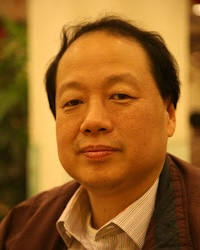
Zhang Zuhua
Zhang Zuhua (1955-), a native of Danyang, Jiangsu Province, is a constitutional scholar. Zhang graduated from the Political Science Department of Nanchong Normal College in 1982 with a bachelor's degree in philosophy, and has served as a Standing Committee member of the Communist Youth League Central Committee, and secretary of the Communist Youth League Committee of the Central State Organs. After the June 4th incident in 1989, he left government and in 1991-1992 studied the constitutional law of Western countries at the Graduate School of the China University of Political Science and Law. Since 1993, he worked as a researcher at independent civil society organizations including Sanhe Institute of Economics and Technology, and Jiuding Institute of Public Affairs. He also served as a visiting professor at the Department of Political Science and Law at Sichuan Normal University. Zhang was one of the drafters of Charter 08 and one of the editors-in-chief of Minzhu Zhongguo (Democratic China) magazine. He is mainly engaged in research on political modernization, the theory and practice of constitutional democracy, and political reform in China, and has published several books including *How to Build a Constitutional Democracy in China* and *The Rise of Civil Society in China*.
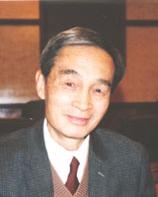
Wang Ruoshui
Wang Ruoshui (1926–2002) was a prominent opponent of Maoism in the Cultural Revolution and a Reform era editor of People’s Daily who was eventually purged in the 1980s.
Wang was born in Shanghai and graduated from the Department of Philosophy at Peking University in 1948. In 1949, he began working at the Beijing Municipal Committee's Policy Research Office, and in 1950, he was transferred to the editorial department of People's Daily, marking the beginning of his 38-year media career. During the early years of his career, Wang Ruoshui was a witness and participant in the ideological movements of China's Cultural Revolution. He wrote articles such as "Eliminate the Reactionary Philosophical Legacy of Hu Shi," which gained the approval of Mao Zedong, and he became a leader of a faction within <i>People's Daily</i>.
However, after the "September 13 Incident" in 1971, Mao Zedong's influence over Wang began to fade. With his growing reflection on the Cultural Revolution and the "extreme left" ideologies, Wang Ruoshui gradually turned to criticize the political system and the alienation of socialism. He criticized the oppression of people under the socialist system and introduced Marxist humanism, emphasizing that "human beings are the starting point of Marxism." As Mao's support for him waned, Wang became a key figure opposing the "extreme left" factions and the Lin Biao group. In 1972, he wrote articles criticizing extreme leftist ideologies but faced opposition from Zhang Chunqiao and Yao Wenyuan. He was eventually removed from his position and sent for labor reeducation at the Hongxing People's Commune in Daxing County.
After the end of the Cultural Revolution, Wang Ruoshui returned to People's Daily and was appointed as Deputy Editor-in-Chief, responsible for the editorial, theoretical, and literary sections. In the context of the reform and opening-up period, he actively promoted the liberation of thought, criticized extreme leftism, and advocated for social and cultural reforms. He was part of the early group that rejected the Cultural Revolution, believing that it was "a revolution conducted using the wrong methods against the wrong targets." However, in 1983, he was dismissed from his position for criticizing the alienation in Marxist theory and was criticized during the "spiritual pollution" movement. In August 1987, due to his support for the 1986 student movement and his criticism of the Communist Party, he was expelled from the Party by the Central Commission for Discipline Inspection during the "Oppose Bourgeois Liberalization Movement," and he retired in 1988.
In his 1992 work <i>The Unfinished Quest</i>, Wang Ruoshui <a href=”https://mediachina.today/2022/wangruoshui”>reflected on his many years of work, admitting</a>, "Most of the time, it was not about serving the people, but about serving the autocrats." He recalled the daily work in the theory department as "carrying out theoretical education, serving the political agenda, and based on political tasks, one period would promote this, another period would promote that."
Afterward, Wang continued to engage in academic activities and was invited several times to the United States as a visiting scholar. In 1998, Wang visited Lund University in Sweden as a visiting professor to continue his intellectual research. On January 9, 2002, Wang Ruoshui died in Boston, USA, at the age of 75, while accompanying his wife, <a href=”https://minjian-danganguan.org/s/china-unofficial/item/25”>Feng Yuan</a>, who was a Nieman scholar at Harvard University.

Liushahe
Liushahe (which means “the river of shifting sands” and is the penname Yu Xuntan), November 11, 1931 - November 23, 2019, was a poet, writer, and scholar. Liushahe was born into a landowning family; his father was a local cadre in the Nationalist government and was killed during the Land Reform Movement. Since high school, Liushahe aspired to become a writer and published poems and essays in local newspapers. In 1949, he was admitted to the Department of Agricultural Chemistry of Sichuan University, and left the university a few months later to work as an editor for the CCP-led Western Sichuan Peasant Daily newspaper, In 1952, Liushahe became a professional writer at the Sichuan Provincial Federation of Literature and Art Circles.
In 1957, in response to Mao Zedong's Hundred Flowers Campaign, Liushahe co-founded the monthly poetry magazine *Stars*, and published a poem series entitled "*Grass and Trees*" that were regarded as anti-party and anti-socialist, and were criticized by Mao. Liushahe was then labeled a Rightist, dismissed from his position, and subjected to supervised labor in his workplace. Many others associated with *Stars* and “*Grass and Trees*” also suffered persecution. When the Cultural Revolution broke out, Liushahe was exiled to work in a sawmill in his hometown of Jintang County, during which his home was raided 12 times.
After being rehabilitated, Liushahe went back to work at the Sichuan Provincial Federation of Literature and Art Circles as an editor of *Stars*. He also resumed writing and published a large number of works. On November 23, 2019, Liushahe died of throat cancer.
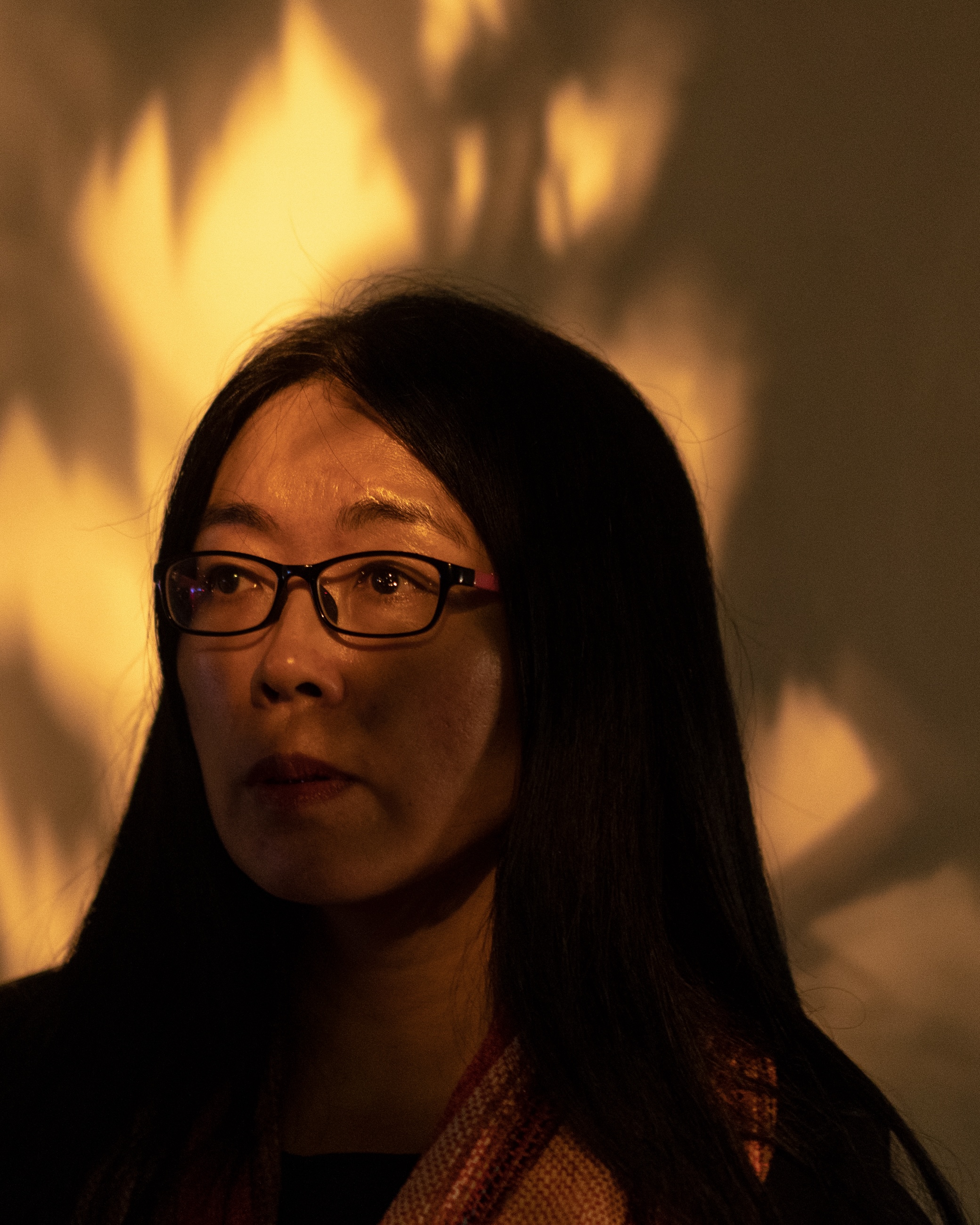
Jiang Xue
Jiang Xue (1974 -) is an investigative journalist. Originally from Tianshui, Gansu Province, Jiang graduated from Northwest University of Political Science and Law in 1996. Aspiring to write for the public good, she became a journalist based in Xi’an.
Jiang served as the chief reporter and later director of the commentary department of <i>Hua Shang Daily (China Commercial Daily)</i>, and later worked for <i>Caixin Media</i>. She published several investigative reports on issues concerning rule of law and social justice. Due to changes in the political environment, Jiang decided to become a freelance writer in 2015, running her own media outlet. She conducts interviews and investigations at her own expense and publishes reports on human rights and the rule of law. As a result, her media outlet has been subject to constant censorship. In May 2020, Jiang was taken away by the police on her way to the hospital to visit her mother, probably because of an article she wrote that criticized China's COVID-19 policies.
In 2019, Hong Kong's Today magazine published Jiang's article on <i>Spark</i>, an underground publication during the Great Famine in China. It is the longest and most extensive article she has ever written, totaling more than 40,000 words, and is considered the most authoritative written record about <i>Spark</i>. She also made a short film called <i>Snow’s Visit</i> with the Xi’an-based filmmaker Tiger Temple on her reporting for the essay.
During the lockdown in Xi’an in January 2022, Jiang published an article entitled “Ten Days in Chang'an,” referring to the ancient name of Xi’an. Describing the difficulty of Xi’an people in the lockdown, it attracted national and international attention and sparked heated discussion. The article was later taken off the Internet in China. She also wrote a widely publicized article on the 2022 White Paper protests called "Remember the Light the Young Have Shown Us.”

Luo Pinghan
Luo Pinghan (1963-), a native of Anhua County, Hunan Province, graduated from Renmin University of China in 1998, majoring in the history of the CCP, and obtained his doctorate degree. He served as a professor and deputy director of the Department of Social Sciences of Guangxi Normal University, and is now a professor and doctoral supervisor in the Department of Party History of the Central Party School. Luo has published several monographs on the history of the CCP, including *History of the Land Reform Movement*, *History of the Agricultural Cooperative Movement*, and *History of the Rural People's Commune.*
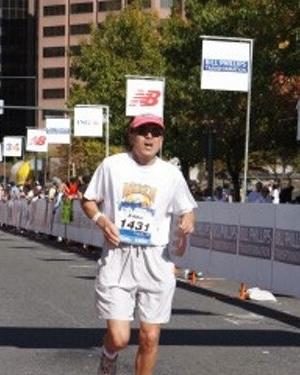
Eddie Cheng
Cheng E(1964-), graduated from the Department of Physics of Peking University in 1984, went to the United States to study in 1986, received his Ph.D. degree from the Department of Physics of Pennsylvania State University in 1990, and then did post-doctoral research at Ohio State University, the University of Paris, and the University of California (Berkeley). He has worked as a computer software engineer since 1996. In his spare time, he occasionally writes about popular science and history. In the early 1980s, Cheng experienced and participated in the pro-democracy movement in the Peking University campus. Since 1999, he has used his spare time to collect and organize historical materials about the 1989 democracy movement, and wrote and published *Standoff at Tiananmen*, a narrative history-style book detailing the movement. The book was originally written in English and published in 2009, and was later translated into Chinese by Cheng. The English version can be purchased [here](https://www.barnesandnoble.com/w/standoff-at-tiananmen-eddie-cheng/1017856719).
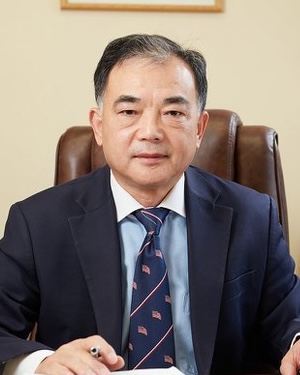
Li Jinjin
Li Jinjin (September 1955 - March 14, 2022) was a native of Wuhan, Hubei Province. He joined the People's Liberation Army at the age of 15, and became a police officer in Wuhan after demobilization. In 1978, he was admitted to the Law School of the Hubei Institute of Finance and Economics (now the Zhongnan University of Economics and Law), and then to the Law School of Peking University, where he studied constitutional law. He returned to Wuhan after graduation in 1985 to teach, and then went back to Peking University to pursue a Ph.D. in Constitutional Law. During Li's doctoral studies, the 1989 democracy movement broke out, and he worked as a legal counselor for the Beijing Workers' Autonomous Federation. After being arrested and detained for 22 months in the aftermath of the June Fourth incident, Li traveled to the United States in 1993 as a visiting scholar at Columbia University; he then studied law at the University of Wisconsin, where he received his J.D. degree. Upon graduation, Li became a licensed attorney in the State of New York, focusing on immigration matters, and served as the president of the Hu Yaobang and Zhao Ziyang Memorial Foundation.
On March 14, 2022, Li was stabbed at his law firm, allegedly by a client due to disputes. He was taken to the hospital and died on the same day.
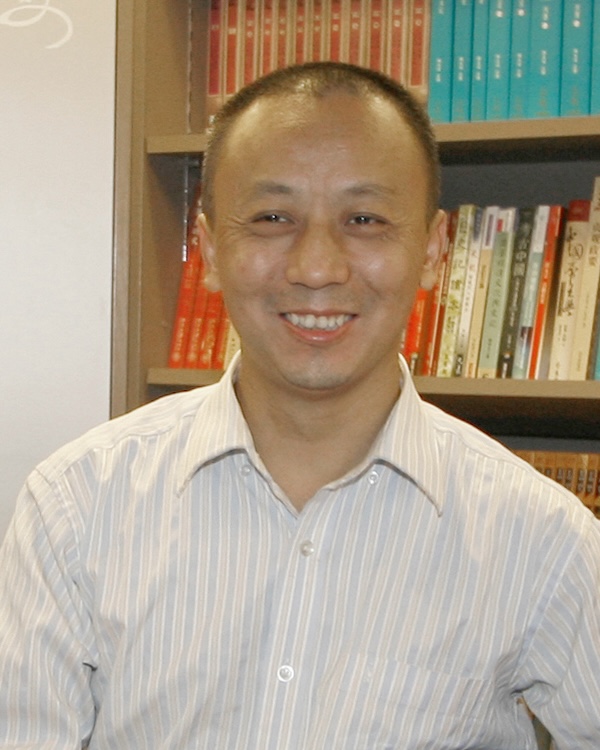
Xiao Shu
Xiao Shu (December 27, 1962-), a native of Yilong County, Sichuan Province, is a writer and political commentator. Xiao Shu graduated from the Department of History of Sun Yat-sen University in 1984. After graduation, he taught CCP history at Wuhan Medical College, where he was suspended from teaching for seven years for refusing to write propaganda articles after the violent suppression of anti-government protesters in June, 1989. He resumed teaching in 1996, where he taught courses that had a reputation for being open. He published books challenging official historical narratives including <i>The Herald of History: The Solemn Promise of Half a Century Ago</i>, which compiled a variety of pro-democracy statements released by the CCP media, and <i>The Truth about Liu Wencai</i>, which offered a more positive view of Liu Wencai, who was portrayed as an exploiting landlord by the CCP. As a result, he was forced to resign from the college in 2001. In 2002, Xiao Shu became the executive editor of the government-run <i>China Reform</i> magazine in Beijing. In 2005, he left the position under pressure from the authorities and went to Guangzhou to work as a senior commentator for <i>Southern Weekly</i>.
Xiao Shu supports freedom of expression, political reform, and the development of civil society, and has published many social and political critiques during his time at <i>Southern Weekly</i>, as well as writing commentaries for overseas media outlets such as BBC Chinese, the Financial Times, and the New York Times. He was expelled from <i>Southern Weekly</i> in 2011 and his Sina Weibo account was deactivated by the government in 2012. In 2013, Xiao Shu was taken away by the police for his repeated participation in and support of civic activism, and was released two days later.
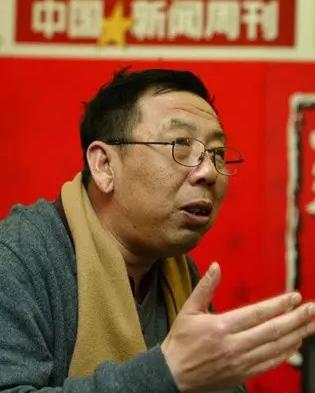
Sun Liping
Sun Liping (May 7, 1955-) is a professor and doctoral supervisor in the Department of Sociology at Tsinghua University. A native of Suizhong, Liaoning Province, Sun was admitted to the Department of Chinese Language and Literature of Peking University in 1978, where he majored in journalism, and then to Nankai University, where he studied sociology. From 1983 to 1999, Sun taught at Peking University, where he served as teaching assistant, lecturer, and associate professor. He transferred to Tsinghua University as a professor and doctoral supervisor in 2000. Sun is also a guest researcher of the China Society for Economic Reform.
Sun is concerned with China's political and economic reforms, and has published several books analyzing China's economy and society from a sociological point of view including *Exploration and Reflections on Development*, *Fracture: Chinese Society since the 1990s*, and *Social Reconstruction—Reconstruction of Order in a Transforming Society*.
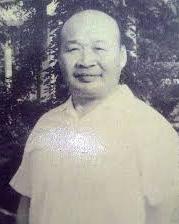
Wang Nianyi
Wang Nianyi (1932 - 2007),an expert in the history of CCP and the Cultural Revolution, was considered one of the pioneers and founders of the study of the Cultural Revolution in China. He joined the People's Liberation Army in 1949, and became a CCP member in 1950. After graduating from university in 1960, he worked as an instructor of CCP history at the People's Liberation Army National Defense University. He suffered from a stroke in 1992 and died on September 13, 2007.
Wang Nianyi published more than 50 papers on the CCP history. In 1988, Henan People's Publishing House published his book *The Age of Great Turmoil*, which is recognized as a masterpiece of the study of the history of the Cultural Revolution at home and abroad, and was reprinted several times. Wang conducted in-depth research on Lin Biao and suggested as early as 1996 at a conference about the Cultural Revolution hosted by Institute of Contemporary China Studies that Lin Biao's defection was coerced by Mao Zedong. Wang admitted that when he wrote *The Age of Great Turmoil* in the 1980s, he already had different opinions about the Lin Biao incident, but dared to write only vaguely about it, but later decided to break the taboo and "write straight". He co-authored several books on the Cultural Revolution with other researchers, but was unable to publish them. According to the scholar Qi Zhi, Wang was often warned by the authorities, and after the publication of his article about Lin Biao's defection, which he co-wrote with researcher He Shu and Chen Zhao, administrators from the National Defense University repeatedly approached him to forbid him to write, but were rebuked by Wang.
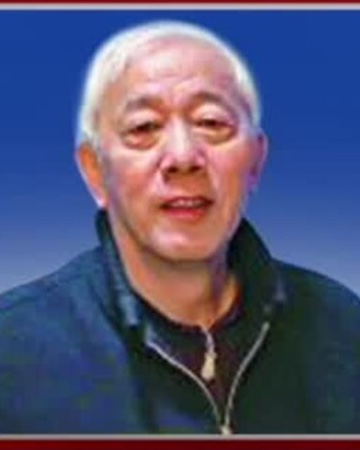
Liu Wenzhong
Liu Wenzhong (1947-) is a native of Shanghai and a writer known for helping his brother critique Mao’s rule.
In 1957, Liu's brother, Liu Wenhui, was labeled a Rightist for criticizing his factory manager during the Hundred Flowers Movement. After the Cultural Revolution broke out in 1966, Liu Wenhui wrote a 10,000-word essay, "Sixteen Articles on Refuting the Cultural Revolution," critiquing the Cultural Revolution and Mao’s power. Liu Wenhui was arrested and executed by firing squad for committing anti-revolutionary crimes. He is believed to be the first regime critic to be publicly executed during the Cultural Revolution.
Liu Wenzhong was arrested for helping his brother to transcribe 14 copies of the article, and was held in a detention center for two years and four months. He was later sentenced to seven years' imprisonment for remarks, such as wanting to avenge his brother's death, as well as for participating in a book club in the detention center. After his release, he was sent to a labor farm to work until February 1979, when he was rehabilitated and returned to Shanghai.
Liu became a businessman in the1980s. According to journalist Jiang Xue’s article, In June 2003, Liu Wenzhong read <i>The Gulag Archipelago</i> for the first time. When he read the book's opening line, “I dedicate this to all those who did not live to tell it. And may they please forgive me for not having seen it all nor remembered it all, for not having divined all of it”, Liu decided to quit business and devote to answering his brother's question: what could socialism look like in other parts of the world? To this end, he traveled to 108 countries, of which more than 40 were countries that practiced or had practiced socialism, including North Korea, Cuba, and countries after the dissolution of the former Soviet Union. Through examining the local political systems, he wrote <i>Xin Hai Guo Tu Zhi (The New Illustrated Treatise on the Maritime Kingdoms</i>), borrowing the name of a 19th-century Chinese gazetteer, as well as a travelogue <i>Reflect, China</i>. Liu also wrote The First Man Against the Cultural Revolution and His Co-Conspirators, specifically about his brother Liu Wenhui.

Xing Tongyi
Xing Tongyi, born in Tianshui, Gansu Province, graduated from Tianshui No. 1 High School in 1966, and has served as a reporter and deputy director of Gansu People's Broadcasting Station, deputy party secretary of Jiuquan city and chairman of Jiuquan Municipal People's Congress Standing Committee. He spent eight years researching historical data and conducting interviews, and wrote <i>Worlds Away: A Look Back at Jiabiangou</i>, a reportage about the labor farm in Jiabiangou.




